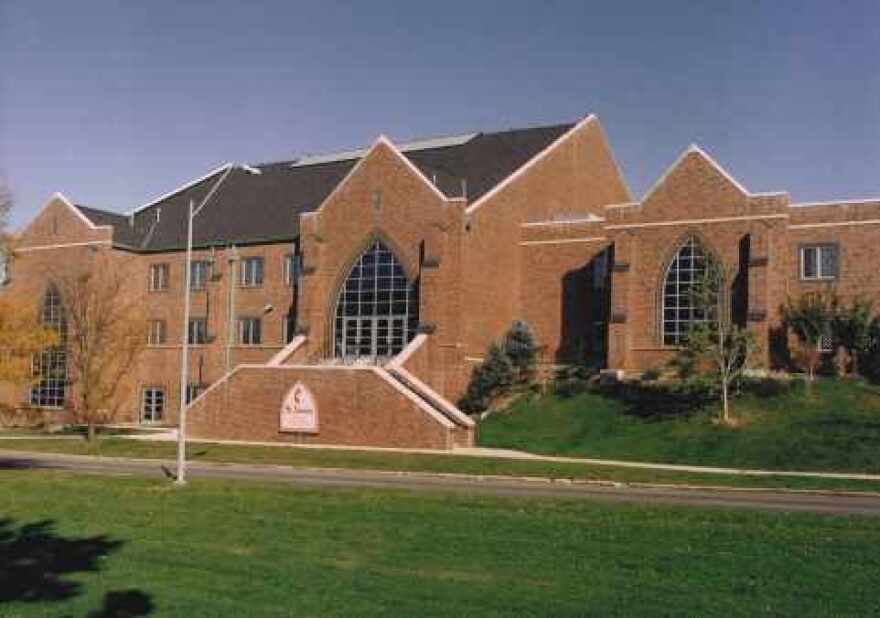At a recent meeting of the Ad Hoc Group Against Violent Crime, founder Alvin Brooks had a panel of teenagers describe their experiences after a sibling had been murdered.
One brother and sister on the panel lost two siblings at different times. As part of our ongoing series, Beyond Our Borders, KCUR’sPeggy Lowe reported that the teens spoke eloquently about how adults in their lives didn’t understand the impact of their losses.
At the meeting, Brooks said some black churches mistakenly comfort the bereaved family by referring to the afterlife rather than addressing the family's immediate grief. Brooks told the teens and their families the church needs to offer professional counseling, something relatively new to the black church.
We reached out to our audience through the Public Insight Network (PIN) to ask if they had a child or sibling who'd been murdered, how well they felt the black church was serving them, and whether the comments of Alvin Brooks were fair criticism.
We heard back from several people; only one wanted to share his story publicly.
Pastor and City Councilman Michael Brooks told us it was arrogant to point a finger at the black church without more information. He said sadly he’s performed many funerals of murdered youth, and that every situation is different, depending of the family’s history with the church.
“Criticism of the church and pastors won’t improve the situation,” he wrote. “It’s offensive to say the church needs to do something without clarity on what some churches are already doing.”
We also reached out to a dozen churches, mostly in African-American communities. Here is a selection of responses from the pastors:

The Rev. Wallace Hartsfield, Sr. was pastor at the Metropolitan Missionary Baptist Church for 41 years before he handed the pulpit over to his son.
Hartsfield says he's done many funerals for the family of young homicide victims.
In his eulogies, he says he tries to help a family understand what he calls “the why” of a seemingly senseless murder. He talks about the systemic problems of poverty, lack of employment opportunities and good education that lead to hopelessness in low-income communities.
“These young people feel trapped, and that does tend to make you angry, even violent — to strike out," he says. "(Our) church is hoping our young members will speak directly to these grieving siblings who see a sister or brother lying there in front of them. I ask them to go and sit down and talk with them. I think the kids will be much more willing to receive (counsel) from someone closer to their age.”
Morning Star Missionary Baptist Church Pastor John Modest Miles has a different approach.
Miles says he preaches that the grieving can find solace in knowing their relative is going home to a better place – home to be with God.
Miles asks families to find comfort in the belief they will be reunited with their family member in heaven.
“Sometimes people talk about ‘I’m doing real well, I’m on this side of the dirt, not in the ground.' I can’t always agree with that, and certainly with these kids, going home to be with the Lord is much better than being on this side," Miles says. "I know it’s hard for parents to understand, but we have to encourage them that this is temporary down here. There it’s permanent.”
Dr. Emanuel Cleaver III, pastor of St. James United Methodist Church says the church should probably not try to explain a young person's murder.
We don't know why God allowed it," Cleaver says. "We live in a broken world."
He says God loves us on both sides of the grave, but he also allows free will.
Cleaver says St. James now has a professional counselor on staff.
"This is something new to the black church," he says. "I think pastors make a mistake in trying to provide long-term grief and trauma counseling when most of us don't have that area of expertise."
This look at Kansas City's east side is part of KCUR's months-long examination of how geographic borders affect our daily lives in Kansas City. KCUR will go Beyond Our Borders and spark a community conversation through social outreach and innovative journalism.
We will share the history of these lines, how the borders affect the current Kansas City experience and what's being done to bridge or dissolve them. Be a source for Beyond Our Borders: Share your perspective and experiences east of Troost Avenue with KCUR.



